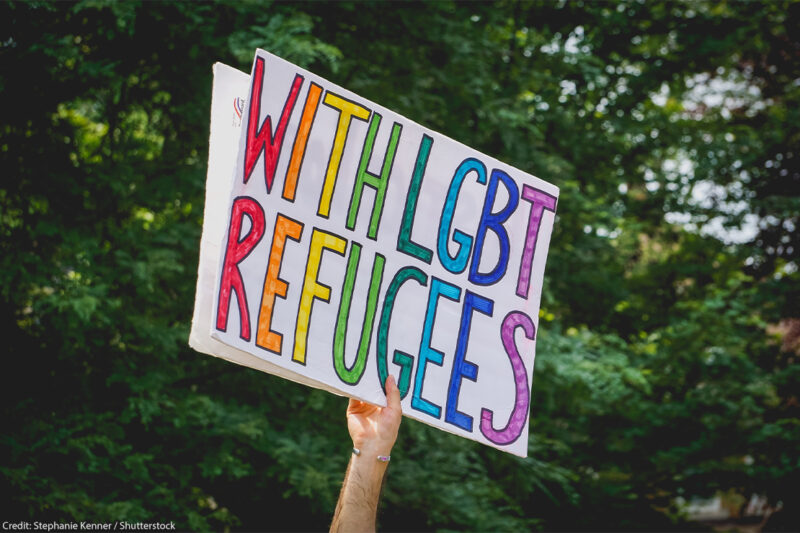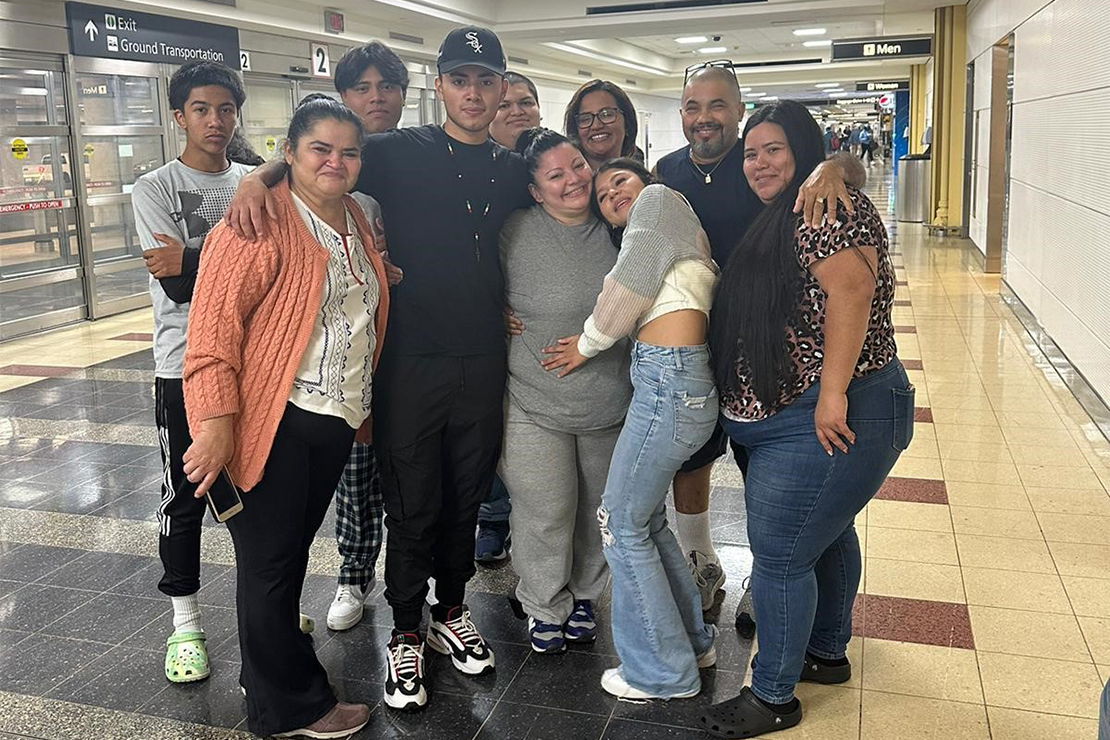Asylum Seeker's Wrongful 6-Year Detention is Emblematic of a Broken System


Jessica Barahona-Martinez and her three children arrived at the southern U.S. border in 2016. Fleeing gang violence and government persecution in El Salvador, she came seeking asylum and a better life. Like many asylum seekers with family in the United States, after being apprehended by Border Patrol, she and her children were released to live with her sister, who is a lawful permanent resident, in Virginia. Her release came with strict reporting requirements as her asylum case proceeded through the courts.
For over a year, Jessica attended every check in with ICE. She complied with all conditions — even when ICE told her during a Friday check in to go home, say goodbye to her children, and report to a detention center the following Monday. She was arrested and detained in June 2017 and unjustly remained in ICE custody for over six years — only being released late September 2023 following a federal court’s intervention.

Jessica Barahona-Martinez (center with grey sweatshirt) after being reunited with her family.
Courtesy of Jessica Barahona-Martinez
We first learned about Jessica’s case earlier this year during a visit to detention centers in Louisiana. After hearing of her years-long plight, we couldn’t fathom what would justify such treatment — particularly for a single mother of young children. We were certain it was a mistake — a legacy of harsh immigration policies of the previous administration — that would quickly be rectified after bringing attention to her case. But instead, ICE dug in its heels, refusing to release Jessica despite her family connections, no history of criminal convictions, and a perfect record of compliance with ICE reporting conditions.
ICE arrested Jessica because El Salvador sought an INTERPOL Red Notice, essentially an international warrant that seeks the arrest of someone who has left the country. It’s true that she was charged with a crime in El Salvador — alleged extortion of $30 associated with a gang. But the charge was pretextual: Police in El Salvador targeted her because she is a lesbian woman and rebuffed their sexual advances. After being detained for eight months in horrific conditions, including being abused by police, she was acquitted of the charge due to lack of evidence. Facing threats from rival gangs after being falsely labeled a gang member, she fled to the United States. After she had already left the country, El Salvador sought to retry her for the charge and later pursued an INTERPOL Red Notice.
El Salvador has a long history of abusing the Red Notice system. However, the Department of Homeland Security continues to use these notices and other unreliable information to arrest, detain, and deport people from El Salvador. In Jessica’s case, the notice was deleted by the Interpol Commission in record time after her pro bono counsel presented evidence of the pretextual prosecution and her claim of innocence. Yet even then ICE refused to release her.
Jessica’s detention was unjustified from the start, and became even more unconscionable as it extended year after year with no end in sight. During this time she was granted asylum twice by an immigration judge, yet each time, the government appealed — arguing she was barred from asylum based on the criminal charge in El Salvador, despite acknowledging she may well be innocent of the charge. As a result of being locked up for more than six years, her mental and physical health severely deteriorated, and she was deprived of contact with her children during key moments of their lives.
We took on Jessica’s case and filed a petition for writ of habeas corpus early last month, which alleged that she was being detained illegally. Following our filing, both the ICE regional field office in Louisiana, and ICE headquarters in D.C. once again rubber stamped her detention. But we pushed forward.
Late last month, a federal court in Louisiana issued an order stating that, if our allegations were true, the government was violating her right to due process by continuing to detain her. The court granted our request for an expedited schedule and ordered the government to respond within four calendar days with a justification for her detention. Notably, the court stated that it would not grant any extension due to the prolonged nature of her detention. Hours later, Jessica was free and reunited with her children and sister. After six years of detention, three of which were in an ICE detention center over 1,000 miles away from her family, the moment they were reunited was emotional.
“I got my life back when I returned to my children’s side,” she told us on the phone after she was released. “Today, I feel like I was born again, surrounded by the greatest love, my children and my family. After 6 long years of being detained, I finally feel whole.”
No one should be subjected to immigration detention without justification, and certainly not the six years of detention that Jessica was forced to endure. President Biden has repeatedly promised to build a more humane immigration system, one that reduces the use of immigration detention and encourages alternatives to detention, which allow people to remain with their families. But Jessica’s case proves that something isn’t working: The immigration detention system is broken if it allows for people like Jessica to be needlessly locked up for years. And Jessica isn’t alone. Tens of thousands of immigrants remain locked up in immigration detention — the overwhelming majority without any legal representation and isolated from legal services as well as their family and loved ones. They deserve the right to make their case, too.

